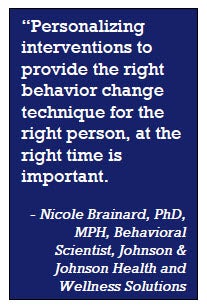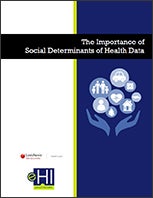The Importance of Social Determinants of Health Data
Pairing medical care with social determinants of health data could significantly improve care, lower cost, and improve quality of life for millions.
There is growing recognition that social determinants of health data are a central piece of the health and wellness puzzle for the U.S. healthcare system. But while many healthcare industry executives are aware of the impact of social determinants of health on populations, there is no clear direction about how to operationalize its use. Because of this, the eHealth Initiative Foundation and the LexisNexis® Risk Solutions healthcare business hosted the second in a series of roundtable meetings on data governance in healthcare.
 The roundtable focused on data governance from the perspective of Social Determinants of Health, convening senior executives from across the healthcare spectrum. The goal of the meeting was to gather expert opinions on the use of social determinants of health data to benefit patients and providers.
The roundtable focused on data governance from the perspective of Social Determinants of Health, convening senior executives from across the healthcare spectrum. The goal of the meeting was to gather expert opinions on the use of social determinants of health data to benefit patients and providers.
This discussion produced examples across a variety of health plans of how social determinants of health data were being used to improve health outcomes. The examples articulated by healthcare executives illustrated how social determinants of health data is used to identify the most vulnerable populations and gives providers and health plans meaningful insights into the health of their patients. Some of these use cases include using social determinants of health data to provide a fresh food “Farmacy”, launch a togetherness program that improves outcomes for seniors and personalized behavioral interventions to improve medication adherence.
Download our white paper today to learn how five health plans are integrating social determinants of health data into innovative programs that help populations of all sizes lead healthier lives.


